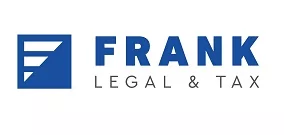Many foreigners aspire the purchase of a condominium unit in Thailand, for either residential or investment purposes.
1. Foreign Ownership
Foreigners are allowed to buy and own a condominium unit in Thailand. However, only condominiums registered under pertinent laws and licensed with the Thai Land Department offer full individual ownership (with a government-issued unit ownership title deed) and are regulated by the Thailand Condominium Act.
At least 51% of the area of the condo building must always be Thai owned. The foreign-owned units are often referred to as "foreign freehold" units or units held under the "foreign quota". If the foreign freehold ownership in a condominium has reached the limit of 49%, the remaining units may be leased to foreigners under a 30-year lease agreement. This is often referred to as "leasehold unit".
There are no restrictions with regards to nationality, and every foreigner who can enter Thailand with a valid visa can buy and own a condo unit within the foreign ownership quota of the condominium. However, every foreigner must personally qualify for ownership under section 19 of the Condominium Act.
2. Transfer of Foreign Currency is Required
Most importantly this means that the purchase price for the condo must be transferred into Thailand in foreign currency and converted into Thai Baht by a licensed financial institution within Thailand.
For a foreigner buying a condominium an original copy of the so-called "FET-Form" form (Foreign Exchange Transaction Form), with his name either as the receiver or sender of the foreign currency, is part of the required documents for registration of foreign ownership at the Land Department.
3. Ownership Transfer – Fees and Taxes
In general, the current fee and taxes applicable to and payable upon the registration of ownership of a condo unit are as follows:
- Transfer fee:
2% of the value of the condo unit (as appraised by the land office). - Income Tax:
Income tax (withholding tax) at the rate of 1% of the land office appraised or the actual transaction value of the condo unit (whichever is higher) applies if the seller is a juristic person. This is a withholding tax, and it is credited to (i.e. deducted from) the company's income tax payable for that year.
An incremental personal income tax with a sliding scale from 0% – 35% based on the value of the property (as appraised by the land office) applies if the seller is an individual. Upon remittance of this tax, the seller will be discharged from all personal income tax liability related to the sale of the unit. - Stamp Duty or Specific
Business Tax:
Either Stamp Duty at the rate of 0.5% of the appraised or the actual transaction value of the property (whichever is higher) applies or Specific Business Tax at the rate of 3.3% of the appraised or the actual transaction value of the property (whichever is higher). In general, the Stamp Duty will apply if the land has not been transferred within the last five years. Otherwise, the Specific Business Tax will apply.
4. Taxation of Income Derived from the Unit
Rental income, as well as proceeds of a resale, are subject to income tax. Profits derived from property in Thailand are taxable in Thailand. According to Double Taxation Agreements, they are taxable only in Thailand.
Generally, the tax rates are as follows:
- Tax rate for corporate taxpayer: 20% (current rate, reduced for small and medium-sized companies)
- Tax rate for individual taxpayer: 0-35% (sliding scale, please see above regarding the discharge from tax liability in case of a resale)
Rental income must be declared in an annual tax return. For a corporate taxpayer, also the proceeds from a sale must be declared.
Furthermore, Land and House Tax (often referred to as "Structure Usage Tax") is imposed on the owners of a condo unit, except for the first residential place. The tax rate is 12.5% of actual or assessed annual rental value of the property. The annual value is the amount a property may reasonably gain in rent for one year if the property is offered for lease.
There are approved plans to introduce an entirely new system of property taxation, including a more general (yearly) property tax with a tax rate of 0,1 % of the appraised value (land office assessed value) if the unit is used for residential purposes, and a higher rate if it is put to commercial use.
The content of this article is intended to provide a general guide to the subject matter. Specialist advice should be sought about your specific circumstances.

